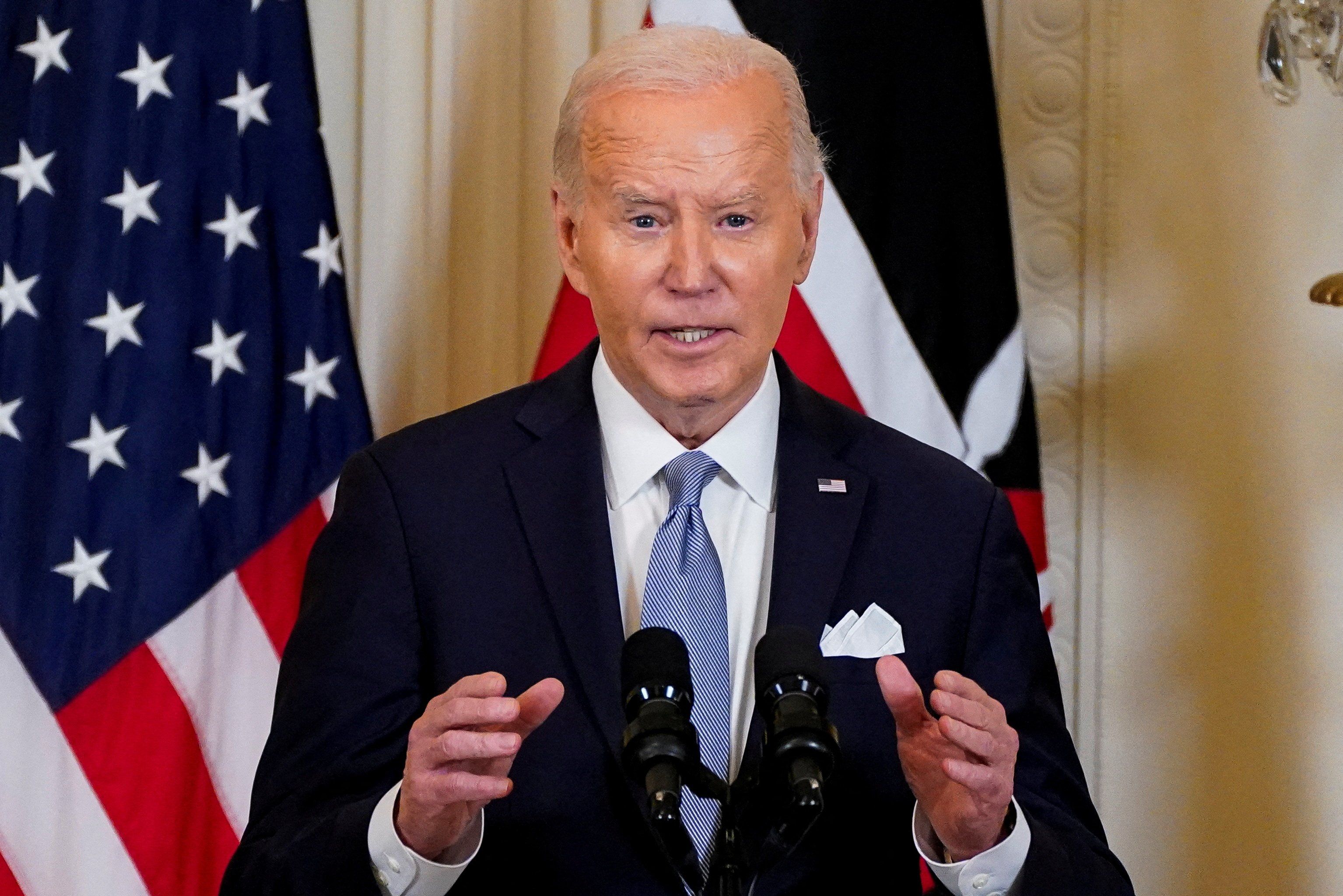The White House on Tuesday said a recent Israeli airstrike that killed dozens of refugees in Rafah — reportedly with US-made bombs — did not cross President Joe Biden’s red line for withholding weapon shipments from Israel.
But that red line seems to have a lot of wiggle room.
Biden’s squiggly red line. Earlier this month, Biden said he would halt some arms shipments to Israel if “they go into Rafah” and operate in “population centers,” expressing concern for the massive number of civilians sheltering there.
Though much of the world is calling for an immediate end to the offensive as the death toll rises, the White House on Tuesday said that the Israeli assault on Rafah does not yet constitute a “major ground operation” that would lead Biden to change US policy toward the Jewish state — even as the IDF sends tanks into the southern Gaza city.
Between Bibi and a hard place. It’s an election year, and Biden has alienated many young voters — a key voting bloc — incensed over his continued support for Israel. But given his reluctance to change course, the president seems to be betting that this won’t ultimately hurt him that much at the ballot box and there’s evidence to support that.
Though recent polling suggests roughly half of the country disapproves of Israeli military actions in Gaza, Americans have historically been overwhelmingly pro-Israel, and Biden knows that — and he’s sticking with the Jewish state.
But it’s still a potentially dangerous gamble for Biden — as he is trailing former President Donald Trump in most crucial swing states.
And if Biden hopes the war will be over before Election Day, he might be disappointed. On Wednesday, an adviser to Prime Minister Benjamin Netanyahusaid that “fighting in Gaza will continue for at least another seven months.”
